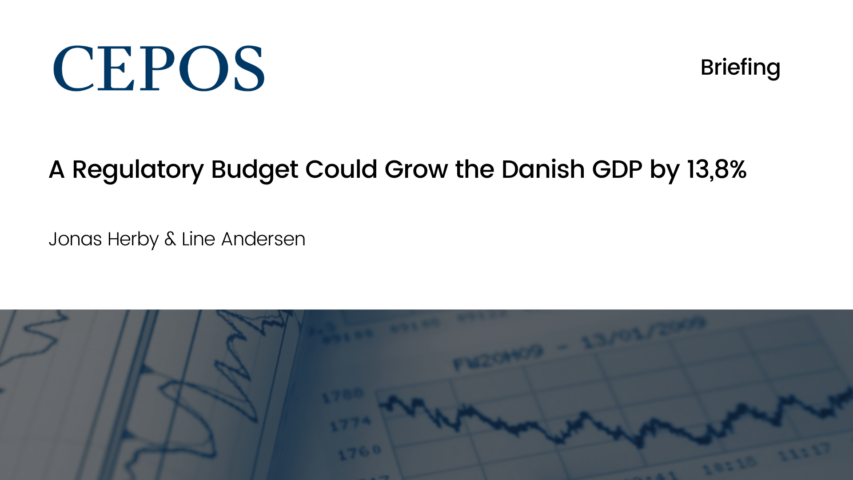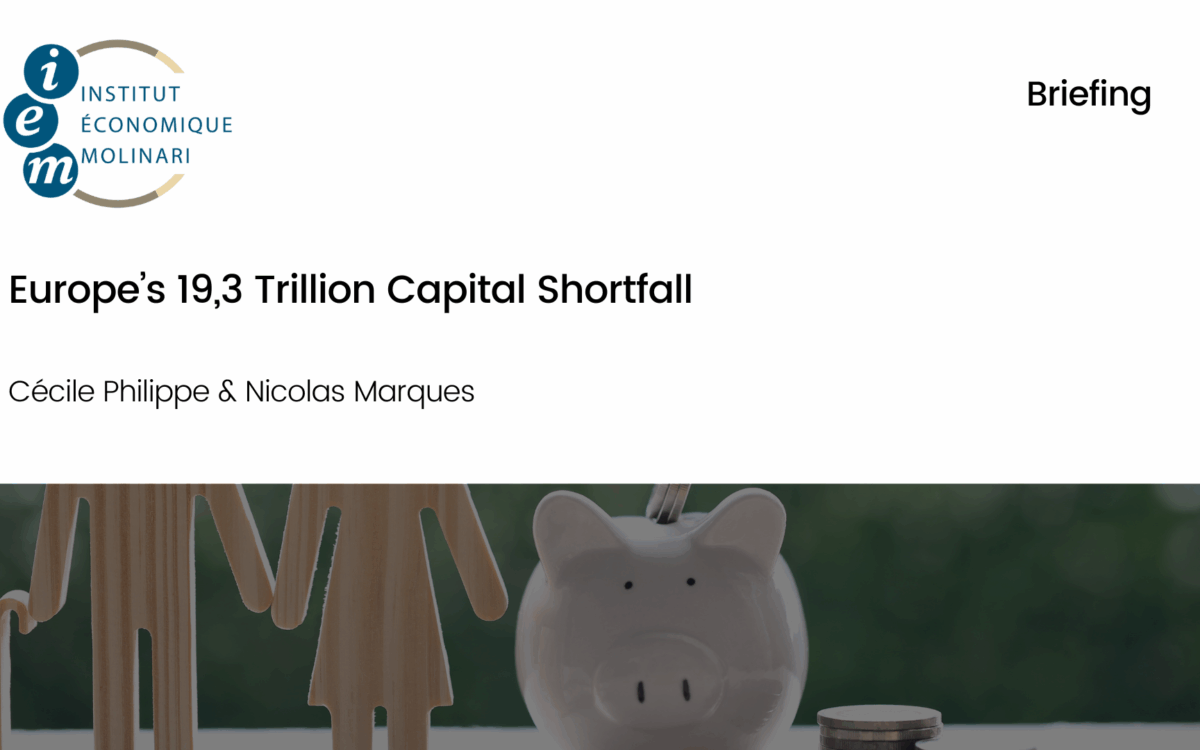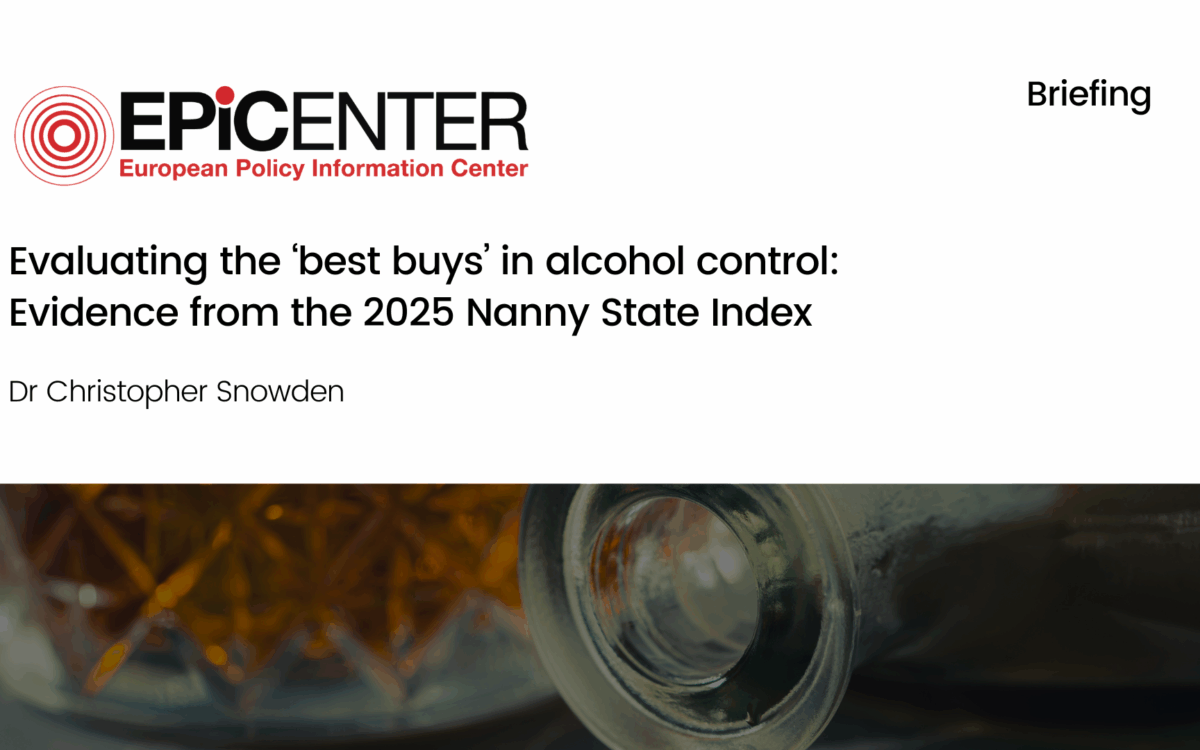A Regulatory Budget Could Grow the Danish GDP by 13,8%

A Regulatory Budget Could Grow the Danish GDP by 13,8%
11 October 2023
International literature consistently reveals that excessive regulation hampers economic growth. This CEPOS briefing conducted a thorough analysis of 68 studies investigating the link between regulation and growth, with most indicating a negative correlation, signifying that increased regulation impedes economic progress.
The analysis primarily focuses on assessing the economic potential of implementing a regulatory budget with a 1-in, 1-out rule, aimed at maintaining the current level of regulation in Denmark. Over the last three decades, Denmark has seen a nearly threefold increase in regulation, with an annual growth rate of approximately 1.4 per cent in the past decade.
Various studies provide estimates, with potential GDP growth ranging from 5.6 per cent to 13.8 per cent over a decade. Assuming a 22 per cent reduction in regulations, a regulatory budget could yield a 3.3 per cent increase in GDP.
Despite uncertainties tied to international variations and regulatory dynamics, these results suggest that a 1-in, 1-out regulatory budget could significantly enhance Denmark’s economic prospects compared to alternative policies, offering potential benefits to both productivity and wages for the average working family.
Download or share this publication
View the PDF
EPICENTER publications and contributions from our member think tanks are designed to promote the discussion of economic issues and the role of markets in solving economic and social problems. As with all EPICENTER publications, the views expressed here are those of the author and not EPICENTER or its member think tanks (which have no corporate view).



